4 Myths We Hold Onto in Our Everyday Relationships
Whether it’s “family comes first”, or “a friend in need is a friend indeed”, we all hold onto certain relationship myths that shape the way we relate to others—how we treat them, how much time and effort we give to them, what we expect of them.
God made us relational (Genesis 2:18) because He is love, and love necessarily involves others (Ecclesiastes 4:8-12, 1 John 3:16). But because of sin, we often struggle to love and relate to each other the way God wants. Sometimes we overprioritise one relationship and neglect another. Other times, we hold on to very high expectations of others and we end up disappointed when they fail to live up to them.
As we examine these myths, may we be encouraged to seek God and practise discernment, so that we can navigate our relationships wisely and love each other better.
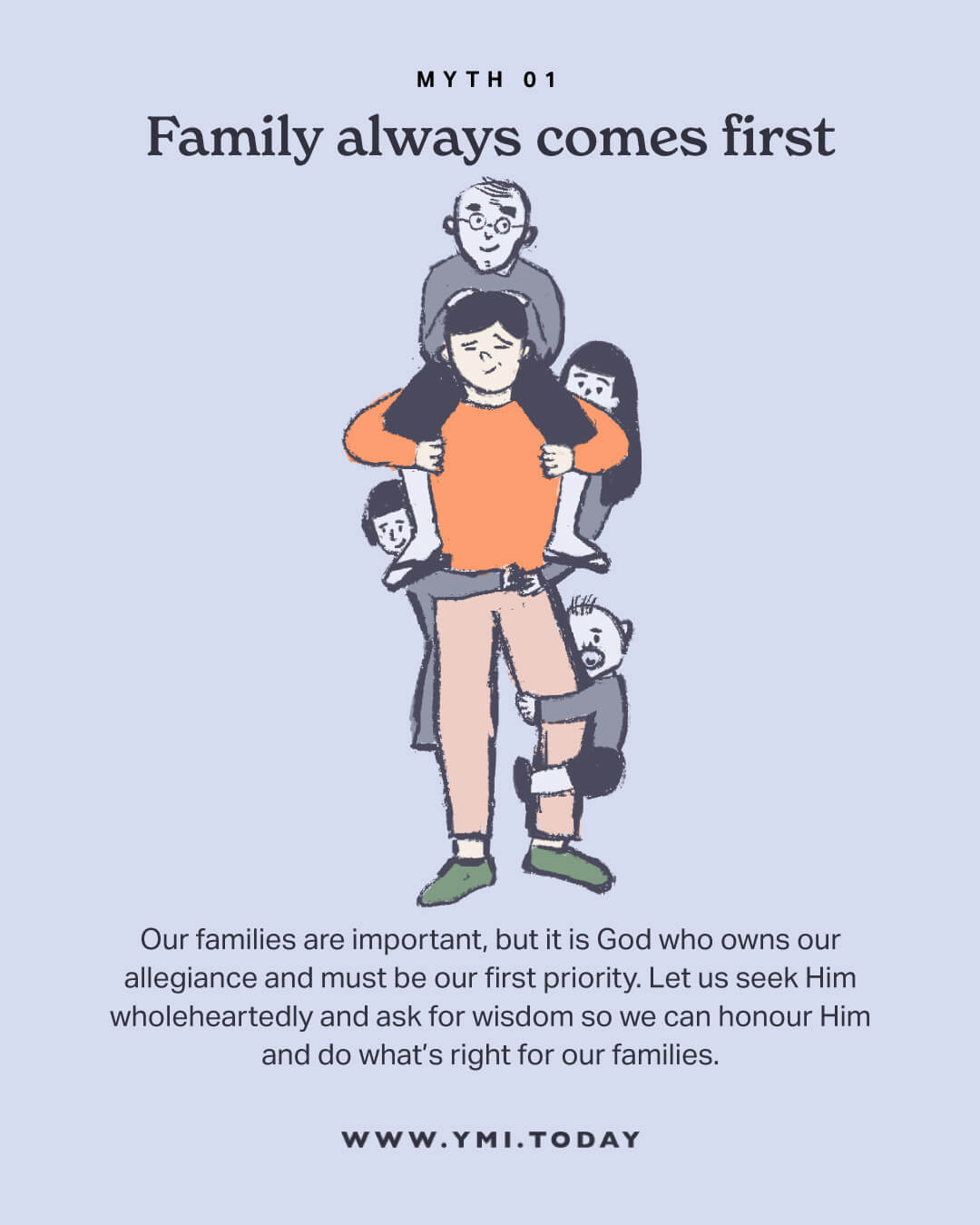
Myth #1: Family always comes first
If you come from a family-oriented background, you would’ve often heard that, “family always comes first”. This kind of “family first” mindset could look like obeying whatever your parents say no matter what, immediately dropping everything else (e.g., work, appointment with a friend) when your family needs you, and if it comes down to choosing to spend time with family or with friends, you always choose family. In younger families, this could look like parents focusing all their energies solely on their kids and expecting others to do the same.
This isn’t to say that we should neglect our families’ needs, but if we’re honest, some of us can become so hyper-focused on our families that everyone else gets sidelined.
This may be hard to swallow, but nowhere does the Bible tell us to put family first, i.e., above all other relationships. In fact, the greatest commandment is for us to love God with all of our selves (Matt 22:37-38). Jesus described His family as “whoever does the will of my Father in heaven” (Matt 12:50), and even called people to “leave their families behind” for the gospel (Mark 10:29-30, Luke 14:26). What He means is that our allegiance is to God first, and Him above all.
We may know in our heads that God comes first, but the way we live might say otherwise. It could be as simple as regularly putting off quiet time with God or going to church because someone in your family needs you. Or it could be as difficult as a family member asking you to do something that wouldn’t honour God.
As theologian Russell Moore puts it, “A church that focuses on the family is in line with the Bible, but a church that puts families first is not.” The Bible is very clear about the need for us to put God first, and this means we are to be most concerned about what’s on His heart, and asking for His wisdom so that we can prioritise what He wants us to do, even when sometimes that means temporarily putting our family’s needs on hold or setting the right boundaries so we’re not simply guilted into doing whatever they ask.
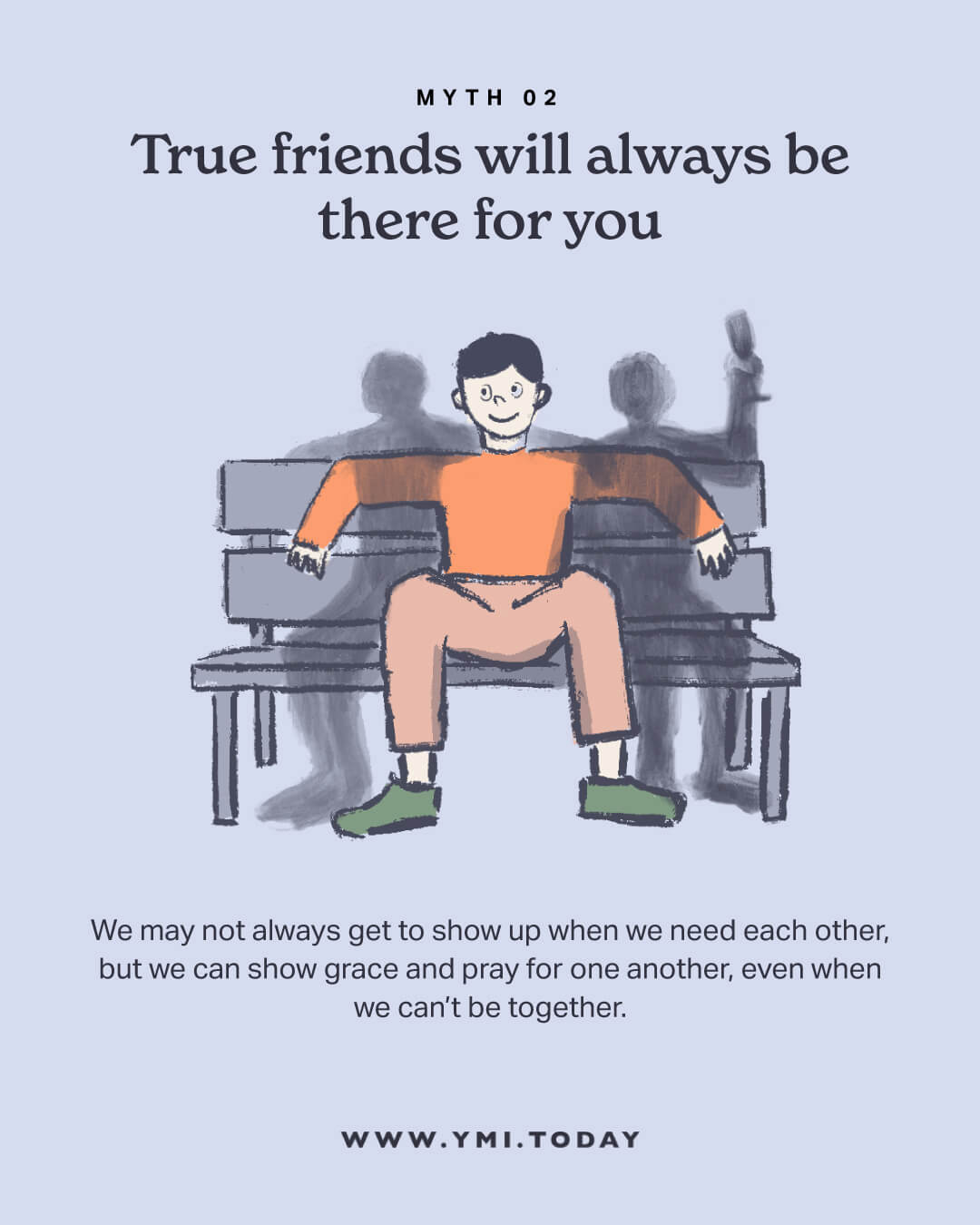
Myth #2: True friends will always be there for you
Most of our friendships tend to start naturally, but over time, our lives may go down different paths, causing us to drift apart. It could be a job change or studies abroad, marriage and children.
When life begins to “get in the way”, it doesn’t automatically mean that our friendships are due to expire, or that they weren’t true to begin with. Even in the Bible, we see how often friends—David and Jonathan, Elijah and Elisha, Jesus and Martha and Mary, the apostles—had to part ways and couldn’t be together. The apostle Paul wrote many letters to his ministry partners and dear friends, sending encouraging messages and prayers when he couldn’t go to them.
Sometimes, as much as we all care for each other, the seasons of life we’re in may lead to responsibilities and struggles that place limitations on what it looks like to show up in our friendships.
We need to acknowledge each other’s limitations and show grace, so we don’t become frustrated and discouraged when our friendships aren’t like before. Most importantly, prayer is one of, if not the best gift, we can give to our friends wherever we may be.
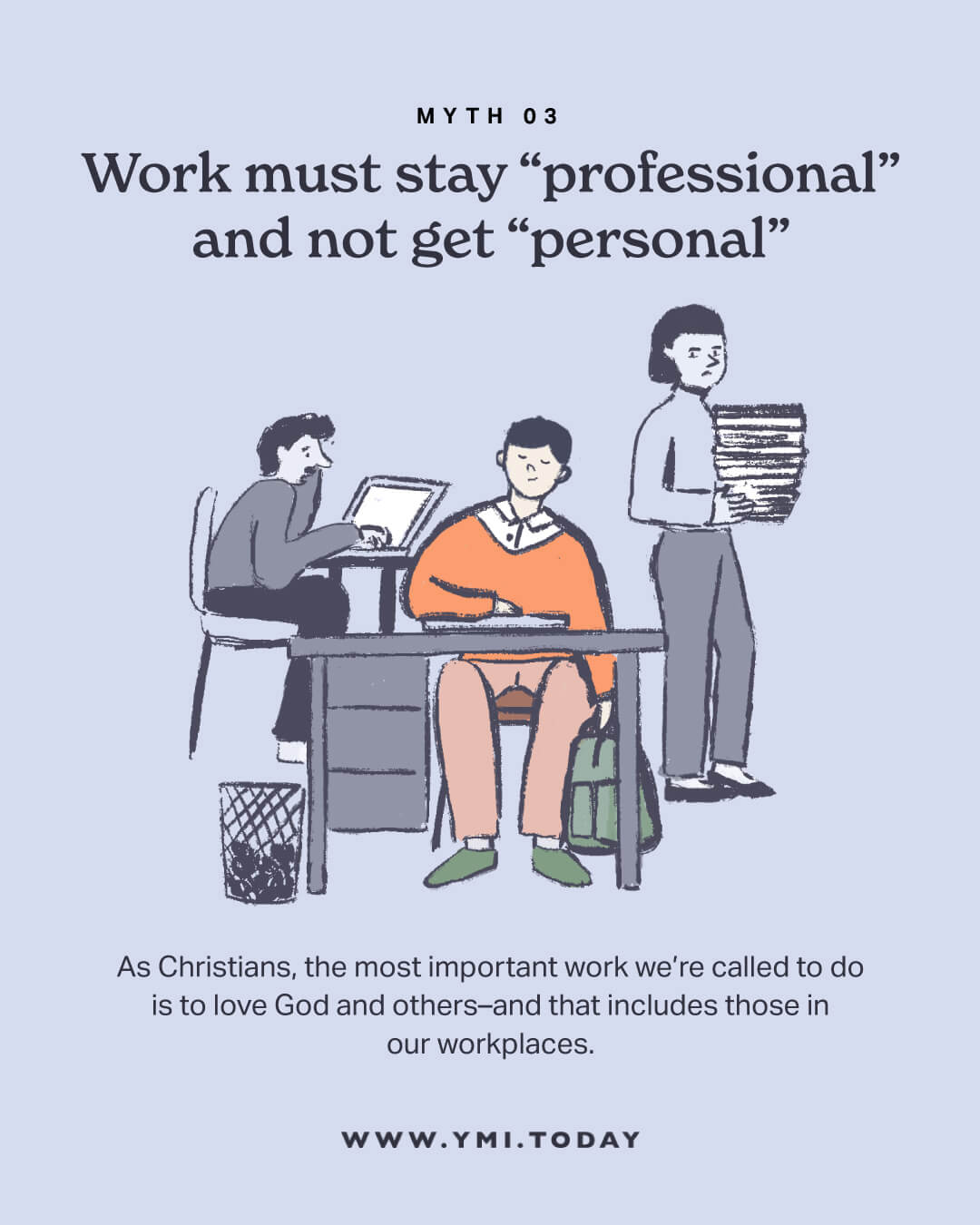
Myth #3: Work must stay “professional” and not get “personal”
“It’s just work”, “It’s just business” are lines many of us may have heard or even uttered. As Christians, do we think the same way—that work is “nothing personal”, and colleagues are just colleagues?
Perhaps we may be tempted to hide behind these lines so we don’t have to think too much about relating well to each other. After all, it’s more efficient to just do whatever’s needed to complete a task or a project, and anyone who can’t handle our brisk approach just doesn’t have what it takes to be a “professional”.
But as believers, we are taught to think and relate differently—to see and treat everyone we meet as fellow beings made in the image of God (Genesis 1:27, James 3:9), and to love them as Christ would (Romans 5:6, Ephesians 5:2).
Being professional means we work hard to excel in our roles, we respect our colleagues, and we recognise that there’s a right time and place to talk about issues, within or outside of work.
Yet, while it’s good to set boundaries, we need to go the extra mile by showing compassion and kindness to one another, and see each other as more than the jobs we do. Whether it’s by offering a listening ear and encouragement to a colleague in need, or responding with gentle words to a not-so-kind superior, we do these because of the great loving kindness we have received from our Father, who calls us to let our light shine before the world.
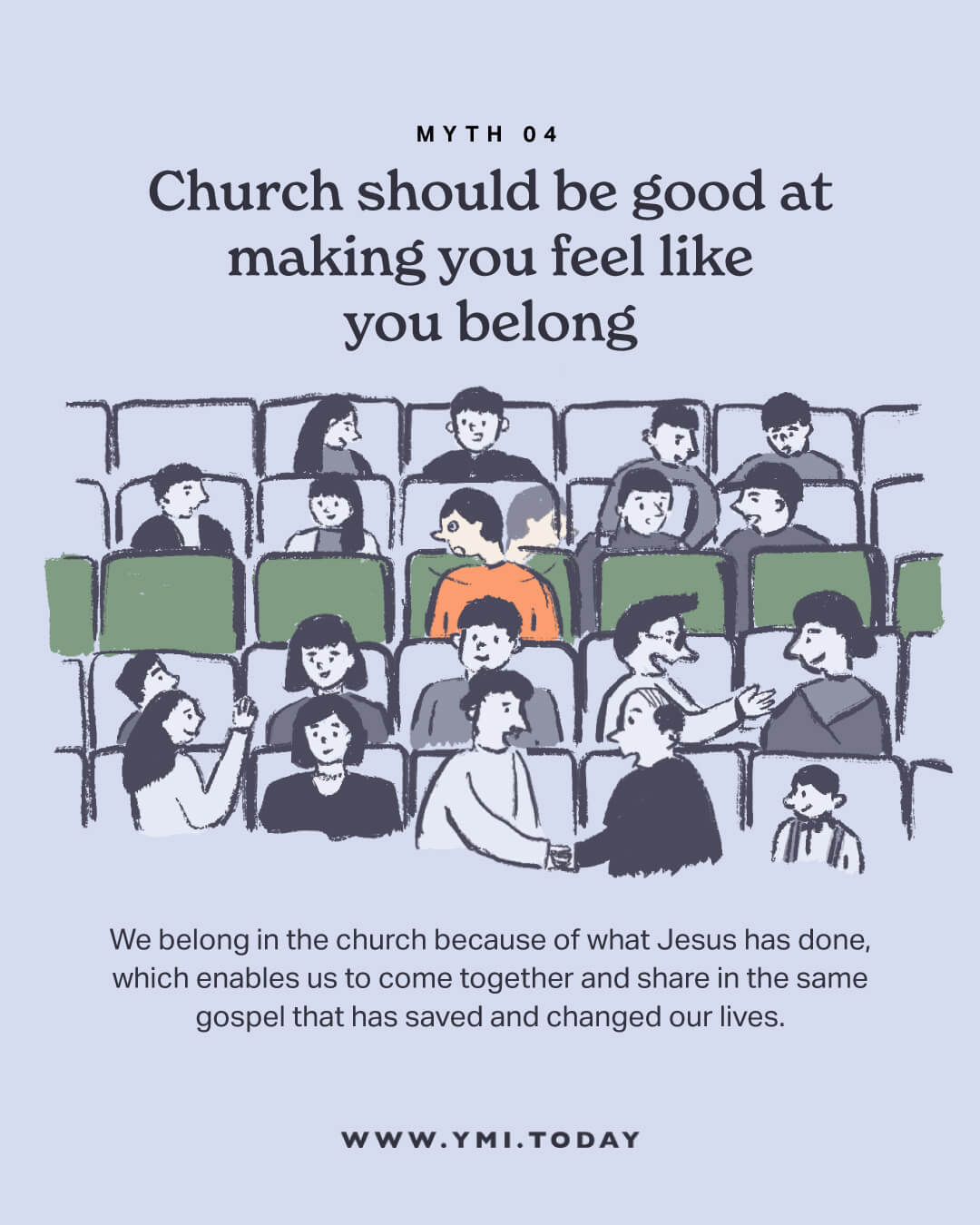
Myth #4: Church should be good at making you feel like you belong
If we’re honest, sometimes the church doesn’t feel as welcoming as it should. Sure, the ushers are friendly and enthusiastic, and the person next to you says the obligatory hi, but that’s about it. As you shuffle in and out every week, you wonder, If I don’t show up, will anyone even notice?
We think it’s the job of the pastors, the ushers, or the leaders to make us feel welcomed and noticed, but it can’t be all up to them to know and remember every single person.
Acts 2:44-47 shows us a picture of the early church: “All the believers were together and had everything in common. They sold possessions to give to anyone who had need. Every day they continued to meet together… They broke bread in their homes and ate together with glad and sincere hearts, praising God…”
From this we can see that what brought them together wasn’t how they felt, but what they chose to do, because they received the same gospel and believed in the same cause—to tell everyone about Jesus and what He had done.
It’s the same for us today—we aren’t recipients or customers of the church. We are the church, and we belong because of Jesus, who gives us every reason to have all hands on deck.
Instead of waiting for someone to take the first step, we can make the first move to either approach those we see regularly and introduce ourselves, or sign up for a Bible class or an event, or join the fellowship so we can move past the polite “hellos” and really get to know each other.
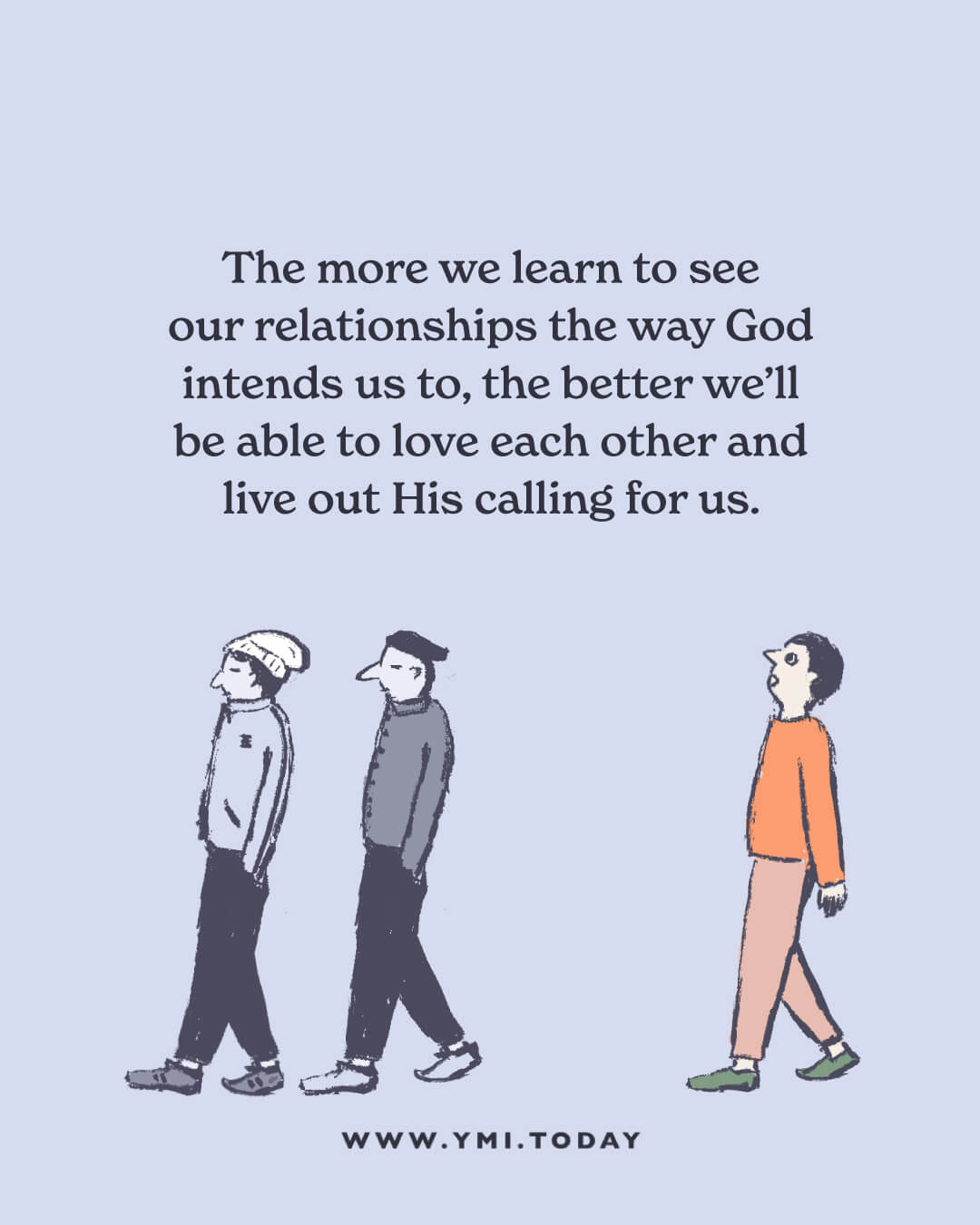










Leave a Reply
Want to join the discussion?Feel free to contribute!